Can suspenders be legitimate maternity wear? It wasn't too long ago that Teek, the protagonist of A.K. Summers's hilarious semiautobiographical graphic novel Pregnant Butch, posed this question -- and pushed readers to wonder how many other butch, masculine-of-center, gender-nonconforming, and transmasculine people were thinking the same thing.
Teek ultimately shows off her defiant, if somewhat awkward yes -- after all, the suspenders wind up supporting enormously baggy "clown pant" jeans because she can't find any that fit. But she might have been more comfortable if she'd had a wardrobe from Butchbaby & Co. and its anticipated new line of "alternity wear" to lean on.
Founded in 2014 in Washington, D.C. by two masculine-of-center women of color, Vanessa Newman and Michelle Janayea, this year Butchbaby & Co. plans to release "androgynous apparel ... for every masculine identified individual who dreams of carrying a child and looking handsome doing it," says Newman on the company's website.
With the tagline "Don't change, just because your body does," a serious analysis of how race, size, and class feed into fashion design, an adorable origin story, and a planned eight-piece line that includes a button-up, boxer briefs, and jeans (you're welcome, Teek!) among other staples, what's not to love? The Advocate spoke with Newman to find out more.
The Advocate: Where did the idea for Butchbaby & Co. come from?
Vanessa Newman: For me, the idea came from a desire to one day have children of my own. During my freshman year of college, I had become really good friends with another female student of color who shared a more masculine aesthetic. We'd always talk about how we were going to grow up together and carry kids around the same so they could grow up and be best friends like ourselves. But then the question always became "But what would we wear?" It was more of something we'd joke about but in the back of my head I'd keep thinking about it.
How'd you go from dreaming to making your business a reality?
Personal style and identity is really important to me -- it's something I had to fight for to own and be comfortable with, in a sense -- and I'd want to retain that even if I was pregnant. That's where the idea for androgynous pregnancy wear came from. The concept as an actual business -- that came after I began to share my idea with other masculine-identified women in the LGBTQ community. It was then that I realized I had an idea that would serve much more of my community than just myself. That's when I decided to actually make this happen.
For my design partner, Michelle, it was in high school that she had the idea of androgynous maternity wear, when her mom got pregnant and she would always wonder, as a designer, if her mom was comfortable and why everything had to be so feminine and frilly. I guess we both had the idea just marinating in our head for few years, so it was kind of divine intervention that we were able to partner up and bring Butchbaby & Co. to life at this time.
It must have been fantastic to find a designer who shared your vision! How did you and Michelle Janayea come to join forces?
Michelle and I had actually been in and out of the same LGBT/QPOC [queer people of color] spaces and shared mutual friends. After I committed to the idea of wanting to make Butchbaby & Co. happen, I reached out to a good friend of hers who I knew was part of a pretty tight community of queer creatives. She connected us and we hit it off immediately; it was a pretty perfect match.
What kind of designs have you envisioned for your first collection?
We've got an eight-piece line laid out right now, split up into three categories: work, play, rest. Our designs aren't set in stone yet, but we're going for kind of an urban minimalist meets J. Crew look. Right now I can tell you the designs for our jogger-style sweatpants and crewneck T-shirt are what I'm most excited about. We've also got a hoodie, pullover sweater, button-up, jeans, briefs, and nursing sports bra in the design phase as well.
What's the response to your vision been so far?
Really receptive! The ideas stated forming in our heads right around the time we were conducting discovery interviews. So we got feedback from about 30 masculine/androgynous-identified individuals who shared the same sentiment that we were on the right track, which was pretty validating to hear.































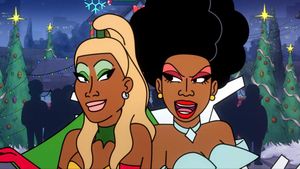











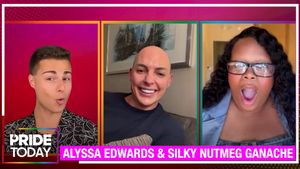




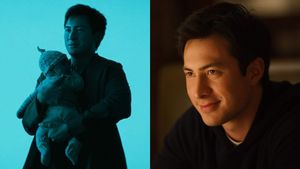





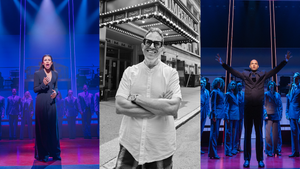


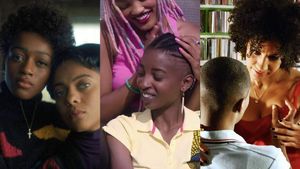



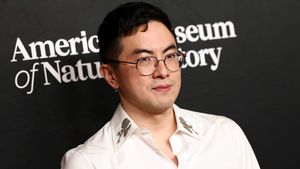




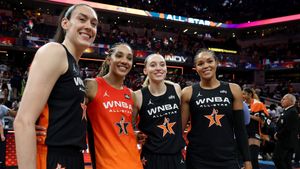

Charlie Kirk DID say stoning gay people was the 'perfect law' — and these other heinous quotes